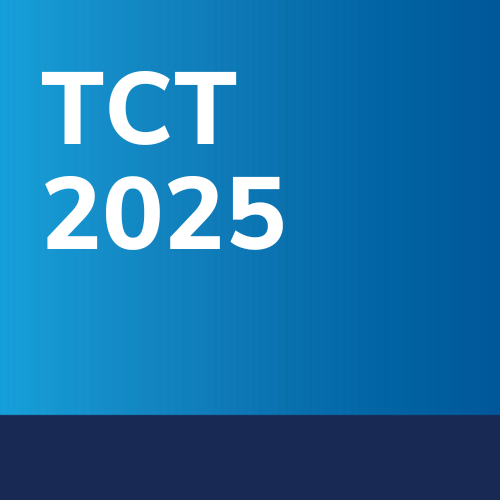Targeted adjunctive intracoronary delivery of the low-dose recombinant tissue plasminogen activator alteplase does not improve microvascular obstruction or major adverse cardiovascular events (MACE) in patients undergoing primary PCI for a large territory STEMI and high thrombus burden, according to results from the STRIVE trial presented at TCT 2025 and simultaneously published in JACC.
In this multicenter trial, Shamir R. Mehta, MD, MSc, FACC, randomized 210 patients to receive alteplase 10 mg, alteplase 20 mg or placebo, which, after antegrade reperfusion was established, was administered directly into the infarct-related artery using a delivery catheter.
The primary outcome was the composite of MACE, distal embolization or failure to achieve ≥50% ST-segment resolution at 30 minutes post PCI, or myocardial blush grade 0/1. The authors defined MACE as the composite of cardiovascular death, myocardial reinfarction, cardiogenic shock or new onset heart failure at 30 days.
Of included patients, 207 (25% female, mean age of 63 years) patients received study drug: 68 patients received alteplase 10 mg, 69 received alteplase 20 mg and 70 received placebo. The median time from symptom onset to randomization was 2.9 hours.
In the two alteplase groups, the primary outcome occurred in 73 patients (53%) vs. 37 patients in the placebo group (relative risk 1.00; p>0.99). Results were consistent for each dose group vs. placebo, and for all components of the primary outcome. Additionally, during study drug administration, there was a trend to more episodes of ventricular fibrillation in the alteplase groups vs. the placebo group (10% vs. 1%; relative risk 6.86, p=0.06). Of note, across all groups, major or clinically significant bleeding occurred in one patient who received alteplase 20 mg.
Mehta and colleagues emphasize that “improving microvascular obstruction and subsequent clinical outcomes remains a major challenge for STEMI patients undergoing primary PCI with large thrombus burden.” Including these results, “no adjunctive therapy to date has improved outcomes once epicardial flow has been restored.” Finally, they write, “these data do not support the routine administration of this therapy in patients with STEMI.”
Clinical Topics:
Acute Coronary Syndromes, Invasive Cardiovascular Angiography and Intervention, Interventions and ACS, Interventions and Imaging, Angiography, Nuclear Imaging
Keywords:
Transcatheter Cardiovascular Therapeutics, TCT25, Angiography, Acute Coronary Syndrome
